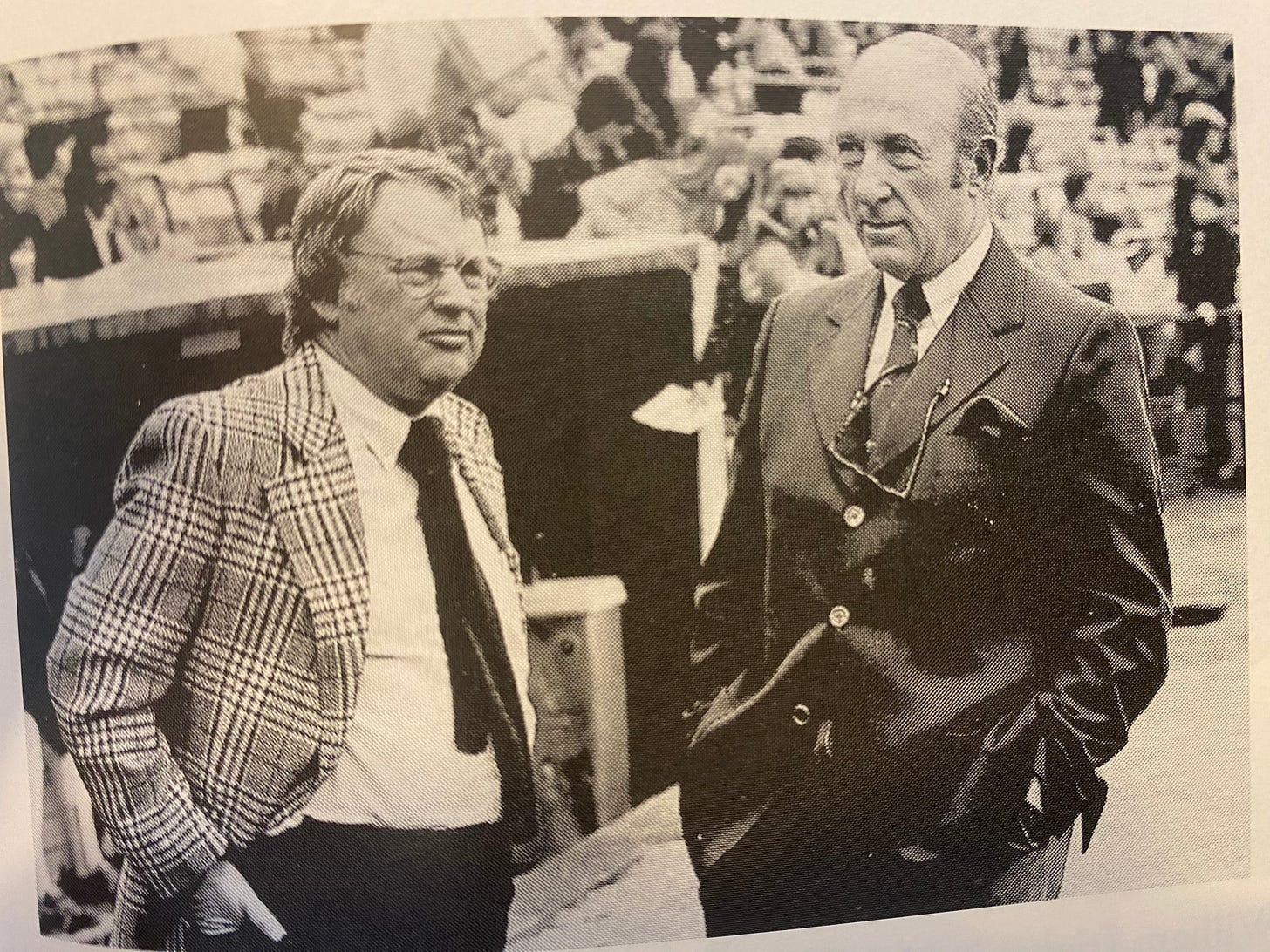The Bird Tapes Interview: Frank Cashen (Part 1)
He could have been a college professor, a lawyer or a newspaper editor, but he wound up running the Orioles. His telling of his classic Baltimore tale is one of the gems of the Bird Tapes collection.
Early in my vintage interview with Frank Cashen, recorded a quarter-century ago at his home on Maryland’s Eastern Shore, he repeatedly undersells his career as a baseball executive.
“I was a sportswriter!” he sputters, seemingly still surprised that he got into the baseball business at all and then became such an accomplished and respected figure.
“General managers get too much credit,” he adds, explaining that GMs draft prospects and make trades based on the recommendations of scouts, who, he suggests, are the real brains of smart organizations such as the ones he oversaw in Baltimore in the 1960s and 1970s and New York in the 1980s.
His selflessness is authentic, but he isn’t giving himself enough credit for all the winning that took place on his watch. The Orioles won two World Series, four American League pennants and five division titles between 1966 and 1975, when Cashen was their chief operating officer. Then he went to New York, applied the principles he’d developed in Baltimore and turned the lowly Mets into World Series winners.
“He’s a guy who achieved greatness in baseball without ever picking up a bat,” said Keith Hernandez, the Mets’ first baseman during Cashen’s era.
His bona fides are especially impressive when you consider Cashen didn't even get into the baseball industry until he was 40. The bright son of a Baltimore Public Schools engineering supervisor, he’d sped through Mount St. Joseph’s High School and Loyola College, graduating from the latter an age 19 with a dual degree in English and philosophy. While writing sports for the Baltimore News-American after college, he earned a law degree and passed the Maryland bar. He could have been a corporate attorney, a college professor, a top newspaper editor. But meeting Jerry Hoffberger sent his life hurtling in a different direction.
Hoffberger, who owned the National Brewing Company and several horse racing tracks, was one of the businessmen who’d bought a stake in the Orioles when they came to Baltimore in 1954. He met Cashen, probable in a horse racing press box, and soon hired him to oversee track publicity. Then he brought Cashen into the brewery as director of advertising, a big job Cashen thought he might keep forever.
Meanwhile, though, Hoffberger kept buying more and more shares of the Orioles until he gained a controlling interest in 1965. As he prepared to take over, he asked Cashen to produce a report on the state of the team. The report impressed Hoffberger enough that he asked Cashen to run the front office. The Orioles won the World Series in his first year on the job, in no small part due to the acquisition of Frank Robinson — a deal Cashen helped engineer along with Harry Dalton, whom Cashen had put in charge of the Orioles’ baseball side.
“I’ve just had an incredible amount of luck,” Cashen said years later. “I was a writer by choice, a lawyer by education, a horseman by heritage, a brewery worker by necessity, and a baseball executive by good fortune.”
When Dalton left to become the California Angels’ GM in 1972, Cashen became the Orioles’ top baseball decision-maker. He’d only been in the game for seven years, but he was a quick study with keen instincts and unafraid to act boldly. He traded Frank Robinson, Dave McNally, Paul Blair, Boog Powell and Davey Johnson, breaking up a championship nucleus growing old. But he formed a new nucleus with trades for such players as Ken Singleton, Tommy Davis, Mike Torrez, Lee May, Earl Williams and Ross Grimsley. The Orioles won division titles in 1973 and 1974.
He left the Orioles to run the brewery for Hoffberger in 1975, but that only ended his first act in baseball. The Mets were in sorry shape when he took over in 1980, but he ramped up their scouting, drafting and player development programs, made several shrewd trades and hired Davey Johnson to manage. The Mets won the 1986 World Series, cementing Cashen’s reputation for baseball brilliance.
Today’s leading baseball executives are young masters of data, often with shiny academic pedigrees. Cashen was a smart guy with many interests, at ease whether he was discussing literature, art, horse breeding or baseball. I’m delighted to present this vintage interview with him, one of the rarer finds in the Bird Tapes collection. (Part 1 is available below to paid subscribers; I’ll post Part 2 next week.) Cashen was a unique figure in Orioles history, the accidental executive who was so adept at the job.
I still recall driving across the Bay Bridge to interview him on a pleasant fall afternoon in 1999. He, too, had been a Baltimore sportswriter, and I, too, had been a college English major. I was writing a lot of horse racing columns for the Baltimore Sun in those days. We had a lot to talk about. He was 74 and happy to review his baseball career, especially the part in Baltimore, his beloved hometown.
When he died in 2014 at age 88, he’d been married to his wife, Jean, for 64 years, and was survived by five sons, two daughters and nine grandchildren.
What a life he’d lived.
Keep reading with a 7-day free trial
Subscribe to The Bird Tapes to keep reading this post and get 7 days of free access to the full post archives.





